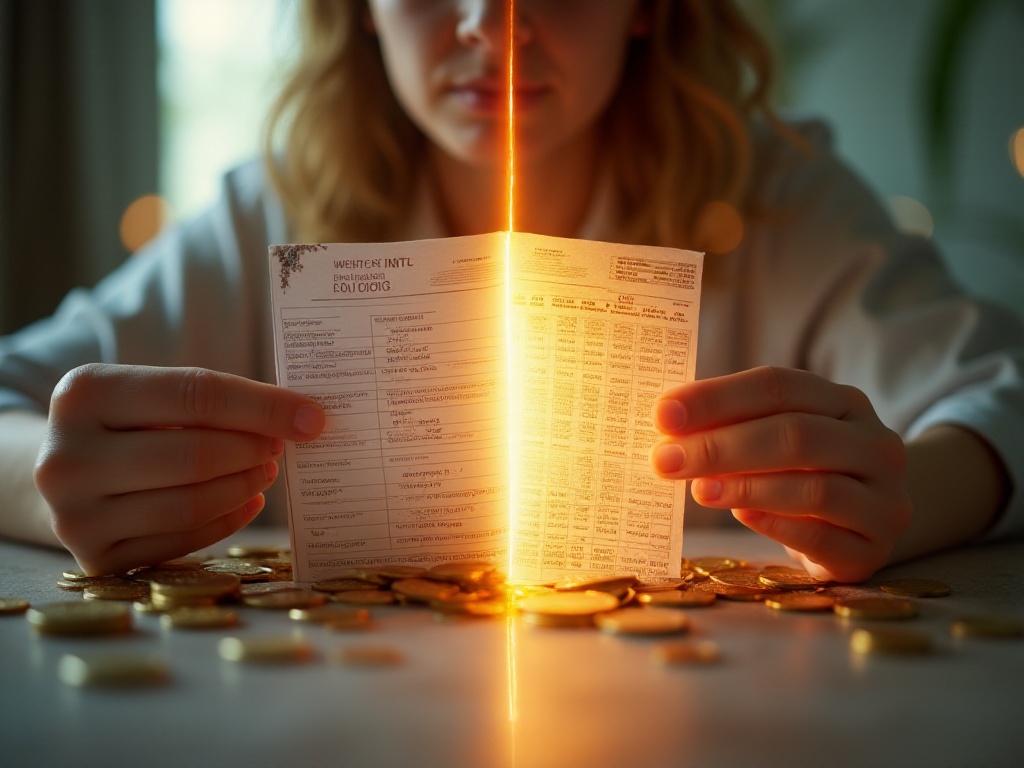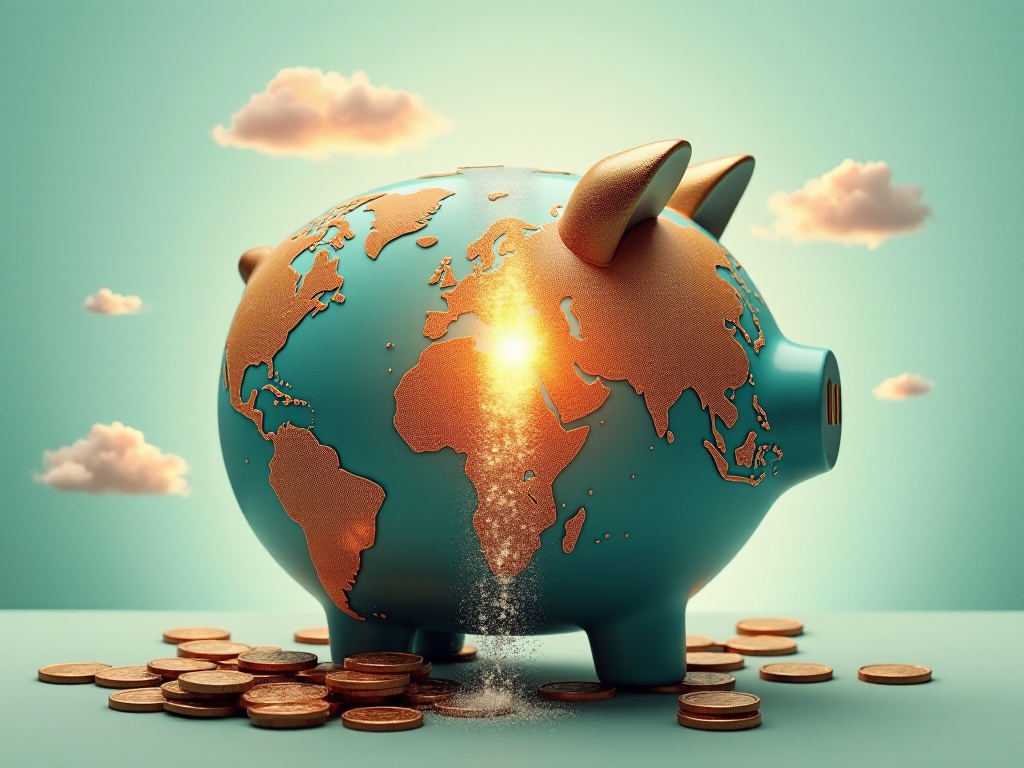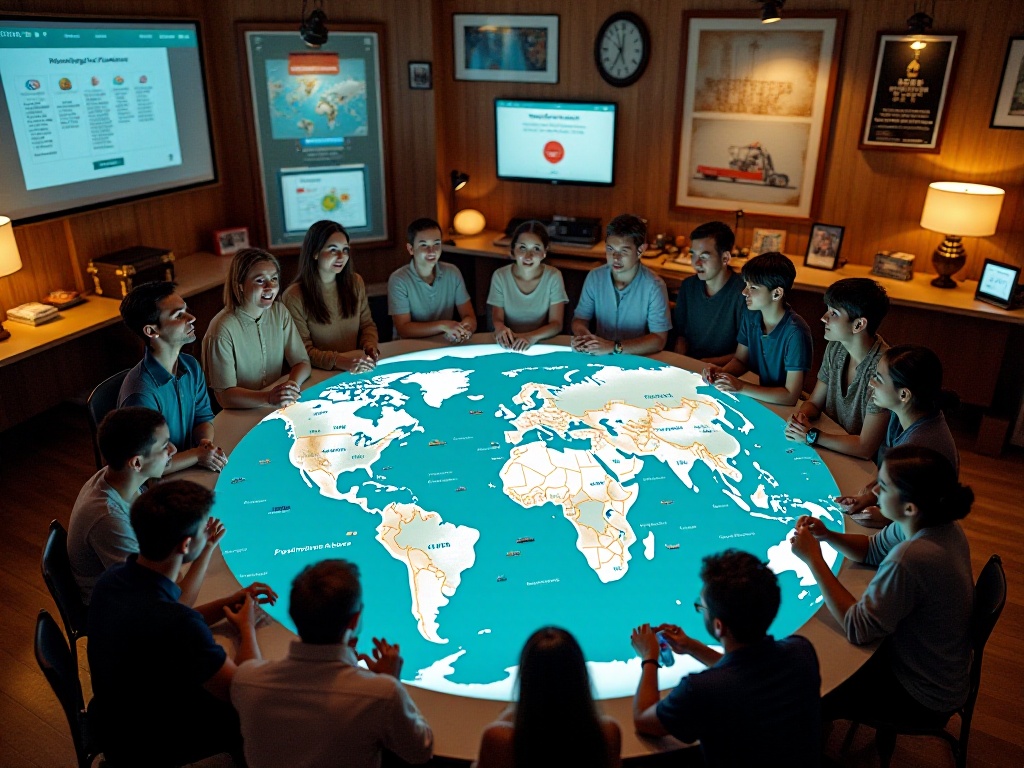The Beginning
That spontaneous trip from last summer still gets my blood pumping when I think about it. I had just graduated and didn't have much savings from work, but I really wanted to go on an impromptu adventure. When I told my friends I was planning to travel to Thailand for a week with just 3,000 yuan, they thought I was crazy. "That probably won't even cover your airfare!" "With that little money in Thailand, you'll end up sleeping on the streets!" Despite these doubts, I secretly made up my mind: I would definitely make this an amazing trip with just 3,000 yuan.
During that period, I read through practically every travel guide available, carefully calculating everything from flight bookings to accommodation choices, from attraction tickets to local transportation. I created a detailed budget spreadsheet in Excel, working out expenses down to daily snack money. After repeated analysis and optimization, I finally figured out how to accomplish this seemingly impossible task.
Budget Allocation
To be honest, it took some serious thinking to properly allocate the 3,000 yuan budget. I remember sitting in front of my computer late one night, with several browser tabs open, checking flight prices while calculating the budget. Hard work pays off - I managed to snag a special deal on flights for just 1,200 yuan round trip, which was a perfect start to my journey.
For accommodation, I spent an entire week comparing prices across various booking websites before selecting several well-rated hostels. While the facilities were basic, they were clean and neat, and all conveniently located. Seven nights of accommodation cost 600 yuan total, averaging just over 80 yuan per night.
The remaining 1,200 yuan was for daily expenses, including transportation, food, and attraction tickets. Honestly, I wondered if this amount might be too little. But with careful planning, I managed to achieve what seemed impossible.

Transportation Tips
In Bangkok, I can proudly say I mastered the public transportation system. The BTS Skytrain became my favorite - though the route map looked complicated at first, I got the hang of it after just one day. I remember buying a day pass for 110 baht, about 22 yuan. This pass became my freedom ticket, allowing me to traverse this bustling city at will.
My most exciting discovery was the water bus. Sitting on the boat with the breeze in my face, watching the scenery pass by on both banks, all for just 15 baht - it was incredibly cost-effective. I often took the water bus to the Grand Palace and Wat Arun, saving money while enjoying the views along the Chao Phraya River.
In Chiang Mai, my transportation became even more down-to-earth. I rented a bicycle in the old city for just 50 baht per day. Initially, I was concerned about safety, but I quickly fell in love with this slower pace of travel. Chiang Mai's small alleys are perfect for cycling, with ancient temples, quaint cafes, and markets around every corner. I often cycled around the old city alone, stopping to take photos whenever something interesting caught my eye, without worrying about time constraints.
Once, while cycling to Doi Suthep, I met a German couple who were also cycling. We rode together, chatting and sharing travel experiences. Though we had some language barriers, this chance encounter brought a joy that no luxury bus tour could provide.
While navigating Chiang Mai's streets, I noticed many locals also used bicycles. This made me feel less like a tourist and more like I was living like a local. Every morning, I would cycle to the early market for fresh fruit, then sit on a bench in front of a small temple to eat breakfast while watching monks collect alms - these morning moments let me experience the most authentic Chiang Mai.

Food Exploration
When it comes to food, this was the most exciting part. In Bangkok, I tried almost every street food stall on Khao San Road. Although the vendors didn't speak Chinese, ordering was easy with hand gestures and menu pictures.
One evening on Khao San Road, I found an auntie selling Tom Yum Goong with a long queue at her stall. Seeing it was only 40 baht per bowl, I immediately joined the line. After waiting nearly half an hour, my first taste made it all worthwhile! The soup was perfectly sour and spicy, with fresh plump shrimp and rich mushroom flavor - definitely the most authentic Tom Yum Goong I've ever had.
In Chiang Mai's night markets, I discovered many food treasures. Mango sticky rice became my favorite, costing just 30 baht. The first time I thought the portion looked small, but it was completely satisfying. Fresh mango with warm sticky rice, topped with coconut milk, was simply heavenly. I ended up getting one every night, and the vendor started recognizing me, sometimes adding extra mango.
I kept my daily food budget between 100-150 baht, which might seem low but was plenty for good meals in Thailand. For breakfast, I'd usually get bread and milk from 7-11 or pad thai from a street vendor. Lunch would be at local restaurants with queues, often getting green curry with rice. Dinner was at night markets, trying different street foods each time.
Once, I discovered an amazing dish in an unassuming shop in Chiang Mai's old city: coconut curry noodles. The owner, a kind elderly lady, made it less spicy since I was foreign. The curry's aroma remains unforgettable, with rich coconut milk and moderate spiciness that had me eating two bowls. Amazingly, this delicious bowl of noodles was just 45 baht.
During this trip, I found that street vendors often offered better value and taste than tourist-area restaurants. Though the environment might be simple, these authentic Thai flavors became my most precious food memories.
Attraction Selection
For attractions, I used a "one detailed, two brief" strategy. "Detailed" meant spending properly on must-see spots. For example, Bangkok's Grand Palace ticket costs 500 baht - not cheap, but worth it for its exquisite architecture and rich cultural heritage. I spent an entire morning there, carefully examining everything from architectural details to mural stories.
"Brief" didn't mean skipping entirely, but finding alternatives. In Bangkok, besides the Grand Palace, many small temples offer free entry. I particularly enjoyed visiting these temples in the morning, watching monks chant and listening to temple bells. This peaceful atmosphere actually gave me a deeper understanding of Buddhist culture.
In Chiang Mai, I focused mainly on exploring the old city. Many temple tickets were inexpensive or free. For instance, Wat Chedi Luang, one of Chiang Mai's oldest temples, cost just 40 baht. There, I met a monk who spoke Chinese and shared many stories about the temple's history and Buddhist culture - experiences you won't find in guidebooks.
On weekends, I visited villages around Chiang Mai. Though transportation was challenging, the scenery and culture were amazing. In one small village, I watched locals making traditional paper umbrellas. They invited me to observe the process and taught me to paint a small umbrella. These free experiences became my most precious travel memories.

Accommodation Experience
To be honest, I was initially nervous about choosing hostels. Looking back, it became one of the trip's biggest surprises. My Bangkok hostel, though only 80 yuan per night, exceeded expectations. The beds were clean with privacy curtains, and shared bathrooms were well-maintained.
The best part was the common area, where backpackers from around the world gathered. One evening, we all cooked together in the shared kitchen. A French girl made delicious mushroom pasta, a Korean guy brought kimchi, and I was in charge of cutting fruit. We ate, chatted, shared travel stories and money-saving tips - the atmosphere was wonderfully warm.
The Chiang Mai hostel was even more interesting, housed in a converted old building. My bed was on the second floor, with a window facing a temple. Every morning, I woke to bell rings and chanting - very atmospheric. The owner, a friendly Thai uncle, recommended local spots that only natives knew about. Through his suggestions, I found many hidden food spots and markets.
The hostel often organized free cultural activities. One evening, the owner invited a Thai massage teacher to teach us basic techniques. Another time, we learned to cook Thai food - though our curry might not have been authentic, the experience of learning and laughing together was wonderful.

Money-Saving Tips
Through this trip, I discovered many useful money-saving tips. First, learn to travel during off-peak times. For example, the Grand Palace is crowded in the morning, but much quieter after 3 PM. You avoid the hottest part of the day and can take photos without crowds. Often, the afternoon light is better for photography, creating unexpected good shots.
Second, make good use of mobile apps. In Bangkok, I used Grab for transportation to avoid taxi drivers taking detours or overcharging. The app can also call motorbike taxis - though it might seem dangerous, it's a common local transport method and very cheap.
For shopping, always negotiate prices. Especially when buying souvenirs in markets, initial prices are usually high. From my experience, you should try to reduce the price by at least a third. However, bargaining requires skill - stay friendly and don't be excessive. I often used simple Thai phrases while negotiating, which made vendors more willing to offer discounts.
For food, I found morning markets were often cheaper than night markets. Many locals buy ingredients there, where food is fresh and affordable. I often bought fruit in the morning for breakfast and snacks. Many morning market food stalls cater to locals, with prices much lower than in tourist areas.
Unexpected Gains
This budget trip brought many unexpected rewards. For instance, at Chiang Mai's night market, unable to afford expensive ice cream, I bought a local coconut slush instead. This drink made me fall in love with Thai desserts. I later learned to make some Thai desserts and still make them at home.
Another time, to save money, instead of joining a tour to an elephant camp, I took a songthaew to a remote village. There, I saw authentic Thai rural life and was invited by a friendly family for tea. Though we couldn't communicate well, their sincere hospitality deeply moved me.
In a Chiang Mai temple, I met an elderly monk. Though we couldn't speak each other's language, we sat together in a temple corner watching the sunset. That peaceful atmosphere was something you can't experience at luxury attractions.

Reflections and Insights
This trip taught me that budget constraints can lead to more authentic travel experiences. With a bigger budget, I might have chosen more comfortable hotels and visited more attractions, but would have missed the surprises in small alleys and genuine interactions with locals.
I discovered that travel's most precious moments aren't about staying in luxury hotels or visiting popular attractions, but about chance encounters and unexpected discoveries. With a limited budget, we tend to appreciate each moment more fully and cherish every encounter.
Looking back, the best memories were often free: morning and evening bells in Chiang Mai's old city, strangers' smiles on Bangkok streets, the aroma of night market food, and friends made from around the world in hostels.
Budget travel taught me how to create unlimited possibilities with limited resources. It helped me learn better planning, weighing trade-offs, and understanding travel's true meaning. So, how would you plan a 3,000 yuan budget? Perhaps you have better ideas - feel free to share your thoughts in the comments.




